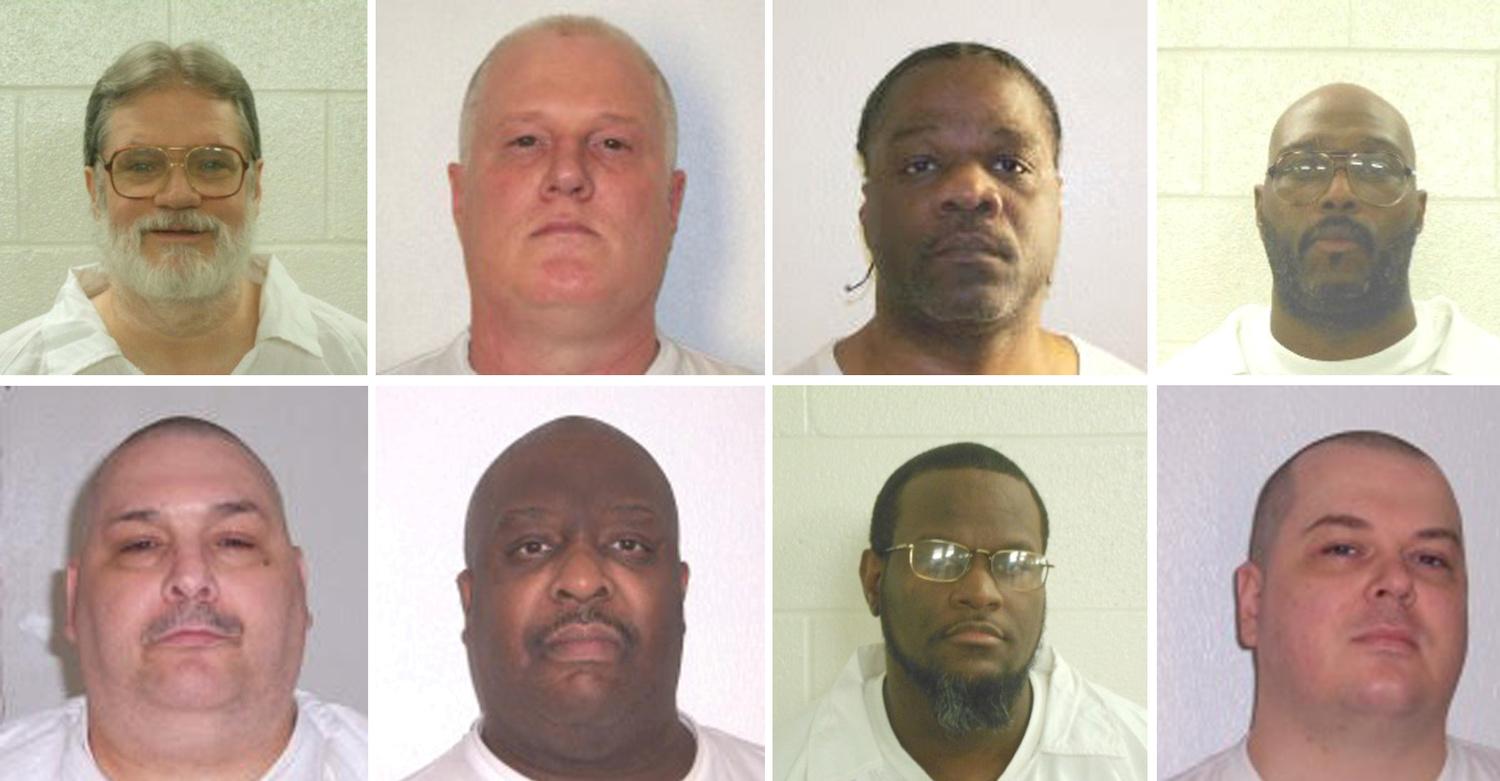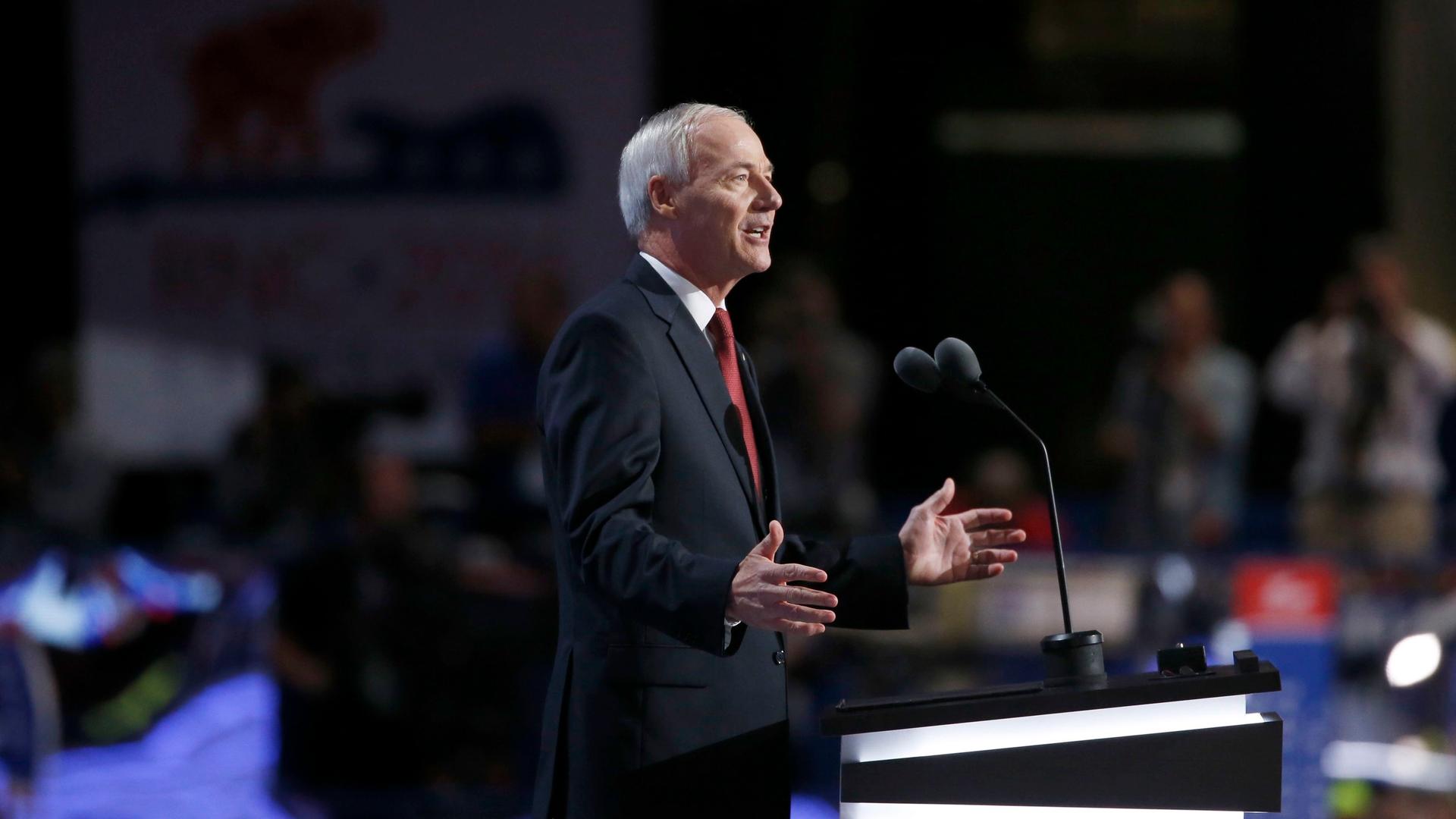A federal judge halts six executions in Arkansas, citing ‘cruel and unusual punishment’
Governor Asa Hutchinson (R-AR) speaks at the Republican National Convention in Cleveland, Ohio, on July 19, 2016.
A US federal judge on Saturday blocked a plan by the southern state of Arkansas to execute a series of inmates there over a 10-day period this month, citing a constitutional amendment banning "cruel and unusual punishment."
The state's Republican governor, Asa Hutchinson, had argued that the executions — which would have been the state's first since 2005 — had to be rushed through because one of the drugs used in lethal injections was due to expire.
The ruling by Judge Kristine Baker of the Eastern District of Arkansas covers nine inmates — six set to die this month, two who had earlier received temporary stays of execution and one whose death had yet to be scheduled.
"The Court finds that plaintiffs are entitled to a preliminary injunction based on their method of execution claim under the Eighth Amendment," Baker wrote in her decision. That amendment bars "cruel and unusual punishment."
Lawyers for the death-row inmates had argued that the accelerated schedule did not give them enough time to prepare their appeals.
A spokesperson for state Attorney General Leslie Rutledge said Arkansas planned to appeal the federal ruling, saying, "It is unfortunate that a US district judge has chosen to side with the convicted prisoners in one of their many last-minute attempts to delay justice."
But Hutchinson's plan faces other legal obstacles. In addition to the stays granted two men, an Arkansas circuit court judge, Wendell Griffen of Pulaski County, on Friday issued a temporary restraining order barring authorities from using vecuronium bromide, part of a lethal three-drug cocktail the state intended to use.

Death-penalty opponents have long argued that death by injection, which was meant to be painless, is anything but, with several inmates dying long and agonizing deaths.
Hutchinson's plan has drawn worldwide attention. The European Union issued a statement strongly opposing the plan, and anti-death penalty protests have grown in front of the Arkansas capitol in Little Rock.
Executions in the US have fallen steadily for years, hitting their lowest level in 2016 — partly because the drugs used in lethal injection have become so hard to obtain.
Several pharmaceutical companies, notably European-based ones, refuse to allow their drugs to be used in executions.
Judge Griffen issued his ruling to allow time to study a request from drug distributor McKesson Corporation for the use of the anesthetic to be banned in state executions.
McKesson contends that Arkansas penal authorities purchased the vecuronium bromide, which provokes muscular paralysis, without warning that it would be used to put inmates to death.
